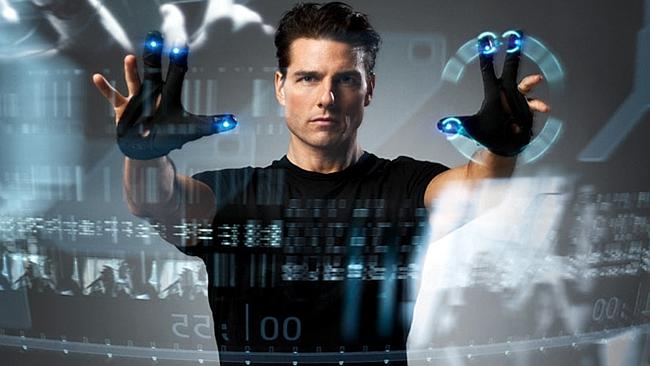Hitachi reveals new system that will predict when and where crimes occur
A JAPANESE tech giant reckons it now has the ability to pinpoint when and where crimes will occur. But is this Big Brother surveillance gone mad?

REMEMBER the Tom Cruise flick, Minority Report (and now a subsequent TV series), where police, through the use of freaky mutant humans, could predict who was going to commit a crime?
Well world, it looks as though we are taking a small step towards that future.
Japanese hi tech firm Hitachi Data Systems (a subsidiary of Hitachi) has revealed that it has developed a system that can predict when and where a crime will occur.
It’s called the Hitachi Visualisation Predictive Crime Analytics and it’s able to absorb massive amounts of data from a variety of sources such as social media, weather reports, bus timetables and maps and the distance from public buildings such as schools or hospitals.
It then crunches all this information to find patterns that humans would most likely miss.
“A human just can’t handle when you get to the tens or hundreds of variables that could impact crime like weather, social media, proximity to schools, Metro [subway] stations, gunshot sensors, 911 calls,” Darrin Lipscomb, the co-founder of the firm that developed the crime-monitoring tech that Hitachi later acquired, told Fast Company.
While police use their own experiences to build up crime-prediction models, Hitachi says with its system there is not need for human’s to figure out the variables.
“You just feed those data sets,” explained Hitachi executive Mark Jules. “And it decides, over a couple of weeks, if there a correlation.”
The company says its system can pinpoint a potential crime scene down to a 200 sq metre area, and that it will then rank a relative threat level.
It also says analysing social media improves accuracy by 15 per cent.
The company plans to roll out the system in six US cities this month.

So what is predictive analytics exactly?
Rob Livingstone, a fellow at the University of Technology Sydney, told news.com.au the best way to explain predictive analytics was to use the example of weather forecasting.
He said with weather, forecasters use current climatic information to predict what happens in the future.
With Hitachi’s new system, he said police would input current information from a range of sources to figure out crime hot spots.
“The concept applies with what’s called big data, the aggregation (collection) of sources,” he explained. “And in the context of predictive policing that could come from mobile phones, geo location, any other positional information, text traffic, thus relating to where you are more likely to be.
“(Authorities) can use that together with other information to work out where crime hot spots might be and using the data which is aggregated to provide some idea of what is likely to happen in the near future.
“It’s a bit like predicting trends.
“For example if you can see in the last 30 minutes there has been a string of robberies in one street in one suburb, predictive analytics will allow you to say we better look in that immediate street or that precinct because there is likely to be something happening in that area. So you’re using the data to drive decision making as to where to allocate police resources.
“The thing with predictive policing increasingly is that police have computers in their vehicles so the ability to report an incident and have that info fed into the system in semi real time allows much more responsive decision making.
‘Predictive policing will not only help with doing things faster, it will also make the decision on what action police should take based on an aggregation of data sources.”
But what about the potential flaws such as biased profiling? And what happens if the system gets it wrong? (Like in the movie)
Hitachi says its system is not like the film (there will be no pre-emptive arrests) and adds that it could potentially improve policing, arguing the controversial stop-and-search practices used by police forces such as the New York Police Department could be improved.
According to Fast Company, the New York Bar Association estimates that despite police being unable to stop people based on their race, around 85 per cent of those stopped were Latino or African American.
“We’re trying to provide tools for public safety so that [law enforcement is] armed with more information on who’s more likely to commit a crime,” Lipscomb said. “I don’t have to implement stop-and-frisk. I can use data and intelligence and software to really augment what police are doing.”
Lipscomb also admits they have yet to prove the system works, hence the trials which will also involve blind trials - police departments carrying out duties as normal while the system runs in the background then comparing the data after.
Hitachi has said it will also make the data publicly available and subject to scrutiny.
“We know that our approach is probably a little more innovative than some of the others, but we’re not saying it’s more accurate,” Lipscomb said. “We want to prove it out with existing customers and then really go broadbased and say: Look, this works.”
Legal issues?
Mr Livingstone says the legal issues would remain the same.
He explained if an officer stopped a car and found there was a range of equipment that oculd be used for burglaries then it would give cause to investigate further.
The same scenario, he says, applies to predictive analytics.
“From my perspective the legal issues don’t really change. If there’s incriminating evidence to reinforce the prosecution’s case that this person was about to commit a burglary for example, that information would be used.
“The fact is they are about to do a break and enter, that event has not happened. Then that becomes the legal issue of they haven’t committed a crime but they were considering it.
“And that goes to the heart of the whole security debate over anti-terrorism laws and predictive raids.
“In essence what happens with predictive policing is that its using an array of digital information from a variety of sources to work out trends in local areas and specific instances.”
Is it good?
“The whole debate over predictive policing is the whole issue of individual privacy, rights to privacy and the need to protect the overall society,’ Mr Livingstone said. “I’m not really in a position to say whether its a good or bad thing, I think it’s inevitable because we are all swimming in a sea of data. We all leave our digital footprints everywhere and for that reason there’s whole wealth of organisations currently feeding off our digital footprints as well as security and other agencies are looking at that data too.”



